Twila ’84 and Allen Mack ’83 were empty nesters with retirement on the horizon when a 5-year-old boy named James changed their lives.
As the principal of his elementary school, Twila Mack knew James (not his real name) was in foster care. When she became concerned about his living situation, she went to see his social worker. Her concern pulled in her husband and, together, they took action enrolling in an eight-week training for adoptive and foster care parents in Arlington County.
When James came to live with them not long after that, they had already begun to talk about formally adopting him.
It’s amazing what a stable home and a little TLC can do for a child.
James began to have fewer emotional outbursts. He started completing assignments on his own, no longer dependent on adults to walk him through each step. He began to make friends.
Along with this transformation came a visible boost in his confidence. “People would notice that he was walking with his head up,’” Twila Mack recalled.
And then a judge returned James to his biological mother.
Working the Angles
The Macks are among the many members of the Longwood community—faculty, staff, alumni and current students—who are involved in Virginia’s foster care system, accepting the emotional ups and downs inherent in working with one of society’s neediest and most vulnerable populations.
Some have been through the foster care system themselves and emerged as successful adults. All are contributing—as mentors and professors in Longwood’s social work program, as social workers, as heads of nonprofits, as court-appointed special advocates and in other roles—to making life better for the more than 5,000 children in the system.
The longer children remain in the foster care system without finding a permanent home, the more likely they are to drop out of school, go to jail, become homeless, live in poverty and, for the girls, get pregnant. And, because of the nation’s opioid epidemic, the system appears likely to become even more strained as more parents become impaired and the shortage of people willing to serve as foster parents persists.
It’s a complex societal challenge, and Longwood is on the front lines in a range of ways. The university’s highly regarded social work programs are preparing undergraduates and graduate students for careers working across the system. Longwood now boasts a concentration of faculty expertise and excellence in the field, with a number of professors who are researching and advising policymakers on reform efforts.
And, of course, there are students and alumni who were themselves part of the system, and are now living out Longwood’s citizen leadership mission with extraordinary efforts to improve individual lives.
The force behind Longwood’s robust social work program, accredited for more than 40 years by the Council on Social Work Education, is Dr. Theresa Clark, a 31-year veteran of the faculty who has helped build up the program and left an indelible mark by training legions of social workers now working across the system.
A distinctive feature of Longwood’s program is that it has a generalist perspective, said Clark. “We don’t have any specializations,” she said. That means graduates are prepared to make contributions in a range of careers that touch the foster care system, including adoption, child protection, mental health, child welfare, case management and substance abuse.
Longwood’s social work program also puts a heavy emphasis on teaching students the leadership skills needed to improve people’s lives. And many of the core tenets of social work parallel the skills and characteristics that Longwood promotes more broadly, such as critical thinking, selflessness, personal integrity, community engagement and participation, and a commitment to learning.
“Our students are taught all of the elements of being a citizen leader,” Clark said. “That takes a recognition of what is occurring in society, how those forces are impacting people and what we as faculty need to do to prepare social work professionals to address those needs.”
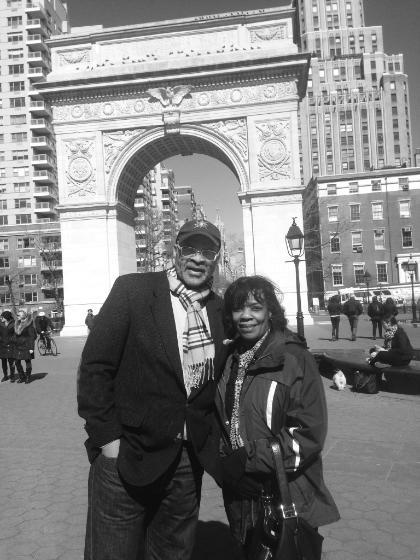
Allen ’83 and Twila Mack ’84 were honored as the Arlington County Foster Parents of the Year in 2016.
Big Hurts, Big Challenges
Shannon Burks Updike ’03 and Nicole Faison Cole ’07 are making their contribution through work with at-risk youth in therapeutic foster care. They are two of the four Longwood alumni who work in the Chester office of HopeTree Family Services, a private nonprofit agency that provides a wide range of assistance and support to families in need across the commonwealth.
Many of the children served by HopeTree have been the victims of abuse and neglect.
“Our kids have big hurts,” said Updike, who has been at HopeTree for 12 years and was recently promoted to director of foster care for the Eastern region. “They have learned that the world isn’t safe and that grownups can’t be trusted. It’s hard to weather that storm and know you can come out OK on the other side.”
One of the biggest challenges of working in foster care, and especially therapeutic foster care, is combating the negative stereotypes about children in the system.
“I don’t believe there is a bad kid in foster care,” Updike said. “Bad things have happened to them, but they aren’t bad kids. Society doesn’t understand them.”
The individuals working directly in the foster care system share a collective appreciation for both the challenges and rewards of protecting this vulnerable population. It can be emotionally draining, but they are uplifted by the resiliency they witness daily.
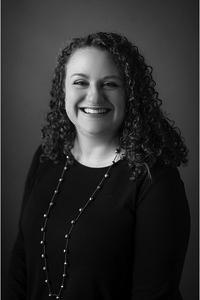
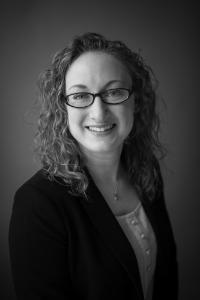
Shannon Burks Updike ’03 (left) and Nicole Faison Cole ’07 (right) are among four Longwood alumni who work for HopeTree Family Services, Updike as director of foster care for the Eastern region and Cole as a foster care supervisor.
“Seeing a kid feel safe and happy in a home when they might not have felt safe before, that’s really great,” said Cole, who is a foster care supervisor at HopeTree. “Knowing that all of our kids are safe when we go home for the day is definitely one of the best parts of the job.”
It’s the desire to work with children and help people that attracts most of the Longwood students who major in social work and then go on to careers working in foster care. Cole and Updike earned master’s degrees in social work from Virginia Commonwealth University. They said they felt well-prepared because of the rigorous training and liberal arts and sciences education they received at Longwood—and because of mentors like Clark.
An Academic Approach to Change
As the social work program moves from strength to strength, it’s also a time of transition. Clark, who chairs Longwood’s Social Work and Communication Sciences and Disorders Department, plans to retire after this year, capping a remarkable career spanning three decades.
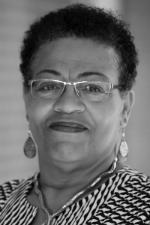

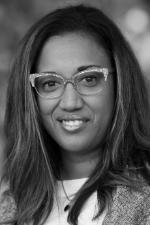
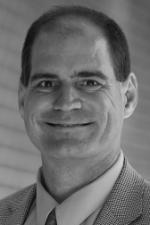
[L-R] Dr. Theresa Clark plans to retire at the end of this year and will be ‘passing the baton’ to Teresa Bowles Reynolds ’96 and two new faculty members, Dr. Erica Brown-Meredith ’95 and Ian Danielsen.
Her retirement signifies a passing of the baton of sorts to the next generation of social work educators, including Teresa Bowles Reynolds ’96, Dr. Erica Brown-Meredith ’95 and Ian Danielsen. All three professors brought with them valuable hands-on experience working with foster children when they recently joined the Longwood faculty.
Reynolds, who was a school social worker for 16 years, directs field education for the social work program. Graduates of the program leave Longwood with roughly six months of work experience. Longwood is one of the few schools that offers undergraduates two different field placements.
Reynolds is currently finding field placements for 60 students for the spring semester, the largest number she has placed to date.
Many of the jobs involve working directly and indirectly with foster care children, whether it is in a local social services department, private foster care agency, group home or school.
“Social work is not about taking kids. It’s about social change, advocacy, equality and social justice” Reynolds said. “It’s about unity and repairing the family, not about tearing families apart.”
Brown-Meredith’s expertise lies in working with older foster children, who are harder to place in foster homes and less likely to get adopted into forever families. She previously ran a community-based program in Norfolk that seeks to break the cycle of poverty for teenage foster children by teaching them essential independent living skills like budgeting, cooking, parenting and driving a car.
Her experience in making positive change in the lives of foster children led Brown-Meredith into teaching and brought her back to Longwood, where she received her undergraduate degree. “The only way to really reach a larger population is to teach social workers to be good social workers,” she said.
Brown-Meredith and Danielsen intertwine their past experiences with textbook lessons to help students gain a better understanding of the broader applications of social work. Danielsen has worked as a therapist for older foster children living in group homes and with incarcerated youth. He previously served as director of Greater Richmond Stop Child Abuse Now (SCAN), a treatment and advocacy organization.
Danielsen’s work at SCAN included reviewing proposed legislation before the Virginia General Assembly and studying different approaches to foster care reform. He was part of the successful 2014 effort to pass legislation that requires collaboration among the local stakeholders in child abuse cases, including law enforcement, social service agencies and schools. The goal is to minimize the number of times a victim has to recount his or her story.
“The system should not be re-traumatizing to the child,” Danielsen said.
'Social work is not about taking kids. It’s about social change, advocacy, equality and social justice. It’s about unity and repairing the family, not about tearing families apart.'
Teresa Reynolds ’96, Director of Field Education, Social Work
In The Trenches
To be sure, many children in the child welfare system have faced some sort of trauma in their lives, and foster care is often a lonely place to be.
An experience three decades ago at Longwood—when she saw those feelings of loneliness and despair firsthand—is what drew Twila Mack to foster care.
Her junior-year roommate, an international student with no relatives nearby, spent a lot of time in their room feeling very much alone, Mack said.
“My heart just always went out to her,” Mack recalled. “When I heard about foster care, it reminded me of her and that experience. I knew I would do whatever I could to help a child not feel like that.”
But Mack wasn’t prepared for the emotional rollercoaster that many foster families endure. For her and her husband, it was the judge’s ruling to return James to his biological mother after he had been living with them four months.
“That was absolutely heartbreaking,” she said. “We were devastated. He had made so much progress with us.”
The couple, who have two grown sons, questioned whether they would continue as foster parents. But a few months later 3-year old Charles (not his real name) was placed in their home. He was believed to be severely autistic because he could not speak, walk up steps or even get out of bed on his own. The Macks felt joy again when, after just three weeks, Charles began saying his first words. It was only the beginning of his incredible progress.
Like the Macks, Caroline Townsend Neal ’05 saw foster children in need and decided to take action.
After a decade as a social worker in the Richmond area, Neal noticed that some foster kids had never had an acknowledgement of their birthdays. That led her to found Worthdays, a nonprofit organization that provides personalized birthday boxes to foster children so that they can experience a true celebration.
The name originated from a conversation she had about one particular foster child, who had experienced an enormous amount of loss and disappointment in his life.
“His therapist said, ‘We have to remind him every day that he’s worth it, because all day he’s reminding himself that he’s not,’” Neal recalled. “The intention is we are not just giving kids stuff, but that we want them to feel like they are worth it on their birthdays.”
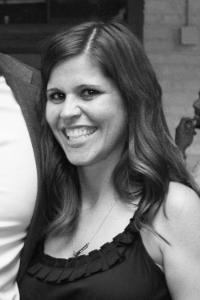
After a decade as a social worker, Caroline Townsend Neal ’05 created a nonprofit organization that provides birthday celebrations for children in the foster care system.
Worthdays focuses on kids who otherwise would not be celebrated, which often includes those living in group homes and residential treatment centers, those turning 18 or older and teenage mothers in foster care. The organization currently serves Chesterfield and Henrico counties and the cities of Richmond and Alexandria. In October, social workers bearing gifts and party supplies provided by Worthdays helped 21 foster children celebrate their birthdays—the most ever in one month.
Many of the children who receive birthday boxes from Worthdays are teenagers who are close to “aging out” of the foster care system, which means they have turned 18 without being adopted into permanent homes.
The Aftermath of Foster Care
While Virginia has a very low rate of children in foster care, one out of every four kids ages out of the system. In fact, more young people (21.2 percent) age out of foster care in Virginia than in any other state, and it can be a difficult—and even life-threatening—experience. Many have nowhere to turn and lack the life skills needed to survive. Twenty percent of those who age out of care will become homeless immediately when they turn 18, and only one out of every two will be gainfully employed by the age of 24. A staggering seven out of 10 girls will become pregnant before the age of 21.
While family reunification is the No. 1 goal in the foster care system, the aging-out problem exists because there has been less focus on what happens to children when reunification is not possible and parental rights are terminated, said Danielsen. Virginia is also one of the few states where localities control social service agencies, and there is often wide disparity in efficacy among departments, he added.
“Most all would agree that the values of permanency planning have not been given nearly the priority that they should have,” Danielsen said.
The 1,400 foster children in Virginia waiting to be adopted wait an average of 16.4 months—longer than their peers in nearly every other state—in part because state law requires a three-month waiting period before adoptions can be finalized. The delay allows social workers time to observe the compatibility of the parentchild relationship.
Getting a good education is another challenge foster kids face. It’s often a struggle for them to finish high school, much less earn a higher degree. In fact, only about 3 percent graduate from college—some of them from Longwood.
'I have this need now to be engaged as a citizen. I’m thankful to Longwood for encouraging students to be active in the community.'
Andrea Miller ’16 uses her personal experience in foster care to help others
Finding Hope at Longwood
Amanda Miller ’16, M.S. ’17, and Andrea Miller ’16 were determined to beat those odds when they arrived at Longwood in the fall of 2012, completely on their own.
The Miller twins lived with a total of 10 different families from the time they were infants until they graduated from high school, in both kinship and foster care. Their last foster environment was not good, and they decided to emancipate themselves as soon as they turned 18. That meant that Virginia would still recognize them as foster children, but they could live independently.
Fred Campbell ’83, their high-school English teacher and a father figure for them, helped the young women fill out college applications and financial aid paperwork.
“Longwood took a chance on us, and we decided to go together and stick together,” Andrea Miller said. (The Millers are not the only students who have come to Longwood with experience in the foster care system. Longwood doesn’t track the numbers, but faculty member Theresa Clark said she has experienced an increasing number of students sharing their foster care stories in the classroom. Current student Averie Smith ’18 tells her story in this issue's EndPaper essay.)
Little did the Miller sisters know that not long after arriving in Farmville, they would find their forever family.
Jim and Tammy York first heard about the twins’ foster care story through their youngest son, who shared a mutual friend with them. In September 2012, the Yorks drove to Farmville from their home in North Carolina to meet Amanda and Andrea. That one meeting was all it took. The Yorks invited the young women to join their family.
After their first family vacation together that fall, the Yorks became an essential support system that helped the twins through their college years.
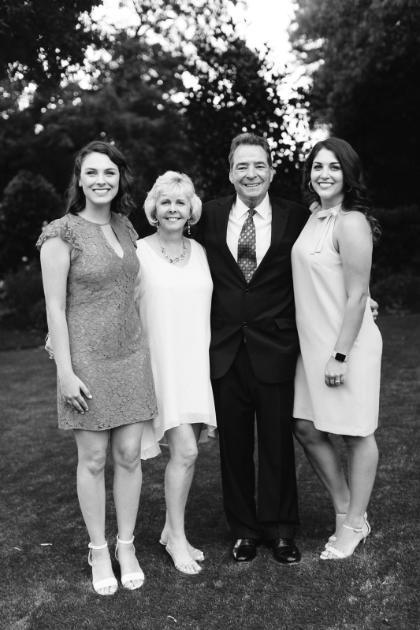
Twins Andrea Miller ’16 (left) and Amanda Miller ’16 (right), who were in foster care as children, beat the odds in more ways than one: They both graduated from college, and they found a family after aging out of foster care. Tammy and Jim York, whose son met Andrea and Amanda through a mutual friend, invited the young women to join their family soon after they enrolled at Longwood.
“We’ve become the daughters she never had,” Amanda Miller said of the woman she now calls mom.
After graduation, Andrea got a job in Farmville recruiting foster families for United Methodist Family Services, a nonprofit organization that offers social services such as career and technical education, adoption services and residential treatment at locations across Virginia. Specifically, her job was to recruit foster families for children ages 10-17, who are most at risk of aging out of the system. One of the most valuable parts of the job was that it allowed her to use her personal foster care experience to help others.
Andrea’s job with UMFS ended in September, but she still volunteers with the organization. Her career goal is to continue to advocate for children and families in foster care, and spread awareness about the significant need for more foster families. She hopes eventually to get involved in reforming the foster care system, and credits her altruistic goals to Longwood’s emphasis on developing wellrounded individuals.
“I have this need now to be engaged as a citizen,” Andrea Miller said. “I’m thankful to Longwood for encouraging students to be active in the community and to be leaders among their peers.”
Amanda Miller also chose to pursue a helping profession because of her experience as a foster child. She received a master’s degree in special education from Longwood and is now a teacher in North Carolina. Some of the students she teaches are in foster care.
“I had teachers who were like my parents growing up. The only reason I made it through school was because of those people,” she said. “That’s what I strive to be as a teacher.”
One Child at a Time
Twila Mack used her background in education to help nurture Charles’ development. Now a first-grader, he is reading above his grade level, playing soccer and about to become a Cub Scout in the same pack the Macks’ older sons belonged to years ago.
He has a permanent home and a brother, too. In a happy turn of events, the Macks’ first foster child, James, was eventually returned to them. The couple formally adopted both boys, now ages 6 and 9, last fall.
“They fight like siblings and have the normal sibling rivalry,” Allen Mack said. "They refer to each other as brothers.”
Both now retired, the Macks’ schedules are very different from those of their peers. Their days are filled with volunteering at school, field trips and shuttling kids to soccer. Honored as the Arlington County Foster Parents of the Year in 2016, they view becoming adoptive parents as a form of giving back to society—a desire they said was fostered by the close-knit sense of community at Longwood.
“When I initially retired, I was looking for some way of giving back to the community and helping others,” Allen Mack said. Then it finally dawned on me that I have that right here at home. Every day I wake up, I’m giving back to society in the fact that we have adopted these two young men. I consider this a 24-7 give-back effort on my part.”
Twila Mack has since persuaded two other families to become foster parents, including her next-door neighbors.
“You can’t save everybody, but, if you can save one, then you feel like you’ve done a good job here on earth,” she said.



Leave a Comment